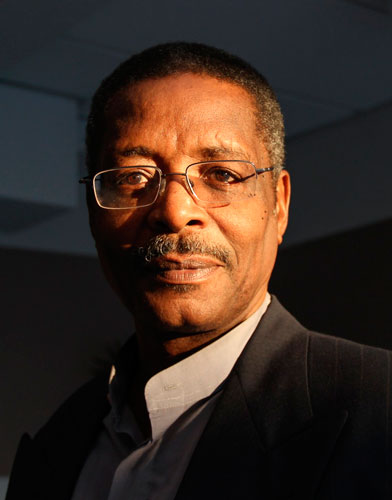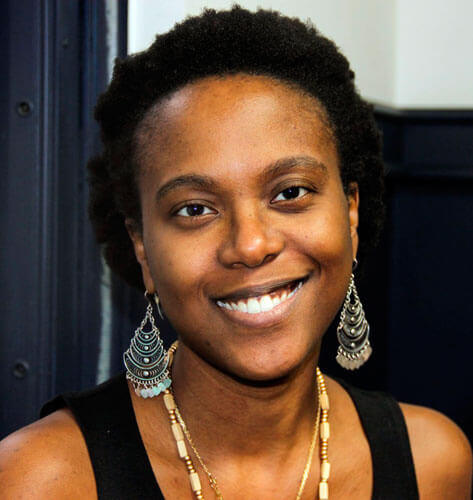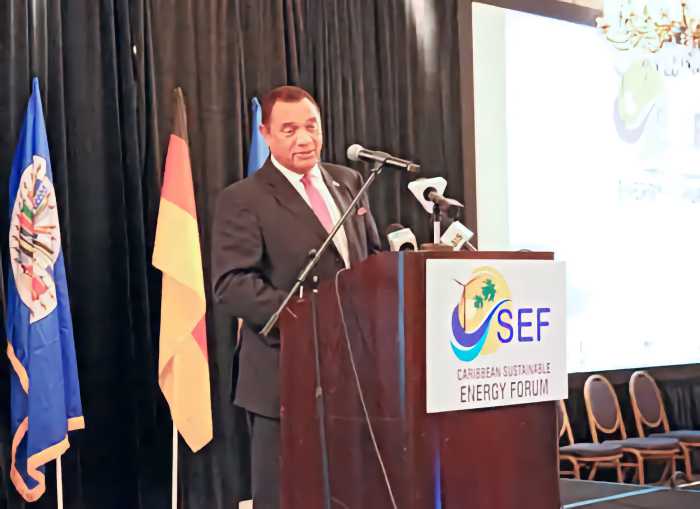In recent years, it was impossible to find Haitian Creole (Kreyòl) instruction in the New York area, open to the general public, until Wynnie Lamour began giving classes, four years ago. She formally opened her Haitian Creole Institute of New York in October 2013, held in shared spaces in Brooklyn.
Lamour’s class for Haitian Creole Heritage Learners, 13 sessions-per-series that includes two field trips, targets students and others with a deep familiarity with Haiti. This class has many students who grew up with one or both Haitian parents.
While many first-and second-generation born Haitian-Americans are familiar with the language — hearing it at home with Haitian-born and raised family members — they don’t feel confident or comfortable speaking it.
“I offer students a space to claim the language as their own,” Lamour explains, elaborating that many of her students were not encouraged to speak the language at home and subsequently, they are made fun of by locals when they travel in Haiti.
With not more than 10 in a class, she says, “I have a mix of Haitian-ancestry and American college students.”
One of her students is a Haitian-American psychiatrist who wants to speak Haitian Creole to her patients. One young Haitian-American woman travels from New Jersey for the weekly Brooklyn sessions. The Heritage Learners class resumes Jan. 20 and will meet at The Commons on Atlantic Avenue near the Hoyt-Schermerhorn subway stop.
Her beginners’ class, which will start in February, has more non-Haitians. “I have American students with a Haitian spouse and a Columbia student who wants to work in a Haitian community,” she says. Lamour distributes her own written materials; the first lessons are a mixture of English and kreyòl.
One of her first private students is a Brooklyn resident who adopted a daughter, now six, from Haiti and wants to maintain a connection to the country. “Language is a powerful connection,” Lamour emphasizes. Another student is a public school teacher with a number of Haitian students.
More recently, award-winning Haitian-American playwright Dominique Morrisseau (Detroit ’67) has begun taking private lessons.
This fall, Lamour attended a conference at Brooklyn College entitled “Kreyòl: The Language of Transformation and Liberation of Haiti,” alongside more than 250 scholars and educators, community practitioners, cultural workers, and students.
A good generation younger than many of the participants, she loved the presentations, absorbing everything at the first all-kreyòl academic event she’s ever attended.
“I wish more young people participated,” she assessed. “There are a lot of young people doing incredible things and they can learn so much from our elders.” Her main critique, “There should have been information shared using social media.”
(Even though some people say Haiti is a French speaking country), a very low percentage of the population in Haiti actually speaks French explained Serge Madere, the keynote speaker for the conference. Historically speaking, he reminded attendees, “In the Act of Independence, the first thing was the oath: We are going to renounce, forever, France and everything that is French.”
One hundred percent of Haiti’s population speaks Haitian Creole.
Outside of New York, kreyòl can be studied in an intensive three-week summer class at U Mass/Boston or at Florida International University’s Summer (six-week) Haitian Institute. Duke and Brown University offer kreyòl classes for their students and there are other forms of instruction available on-line and by Skype. Recently, the Haitian Embassy in Washington DC has began a twice-weekly kreyòl class.
For information: HCLI www.haitiancreoleinstitute.com.




























